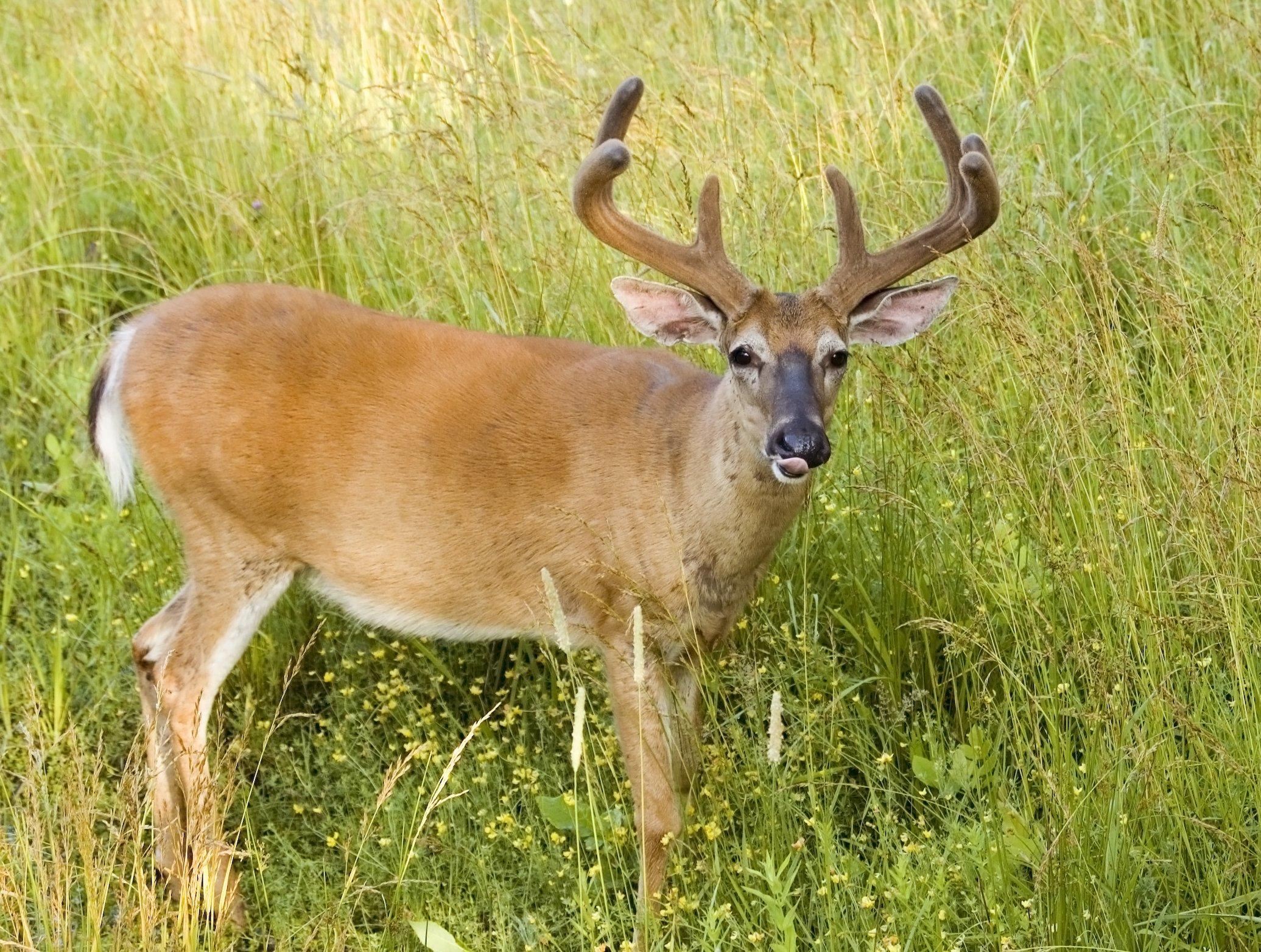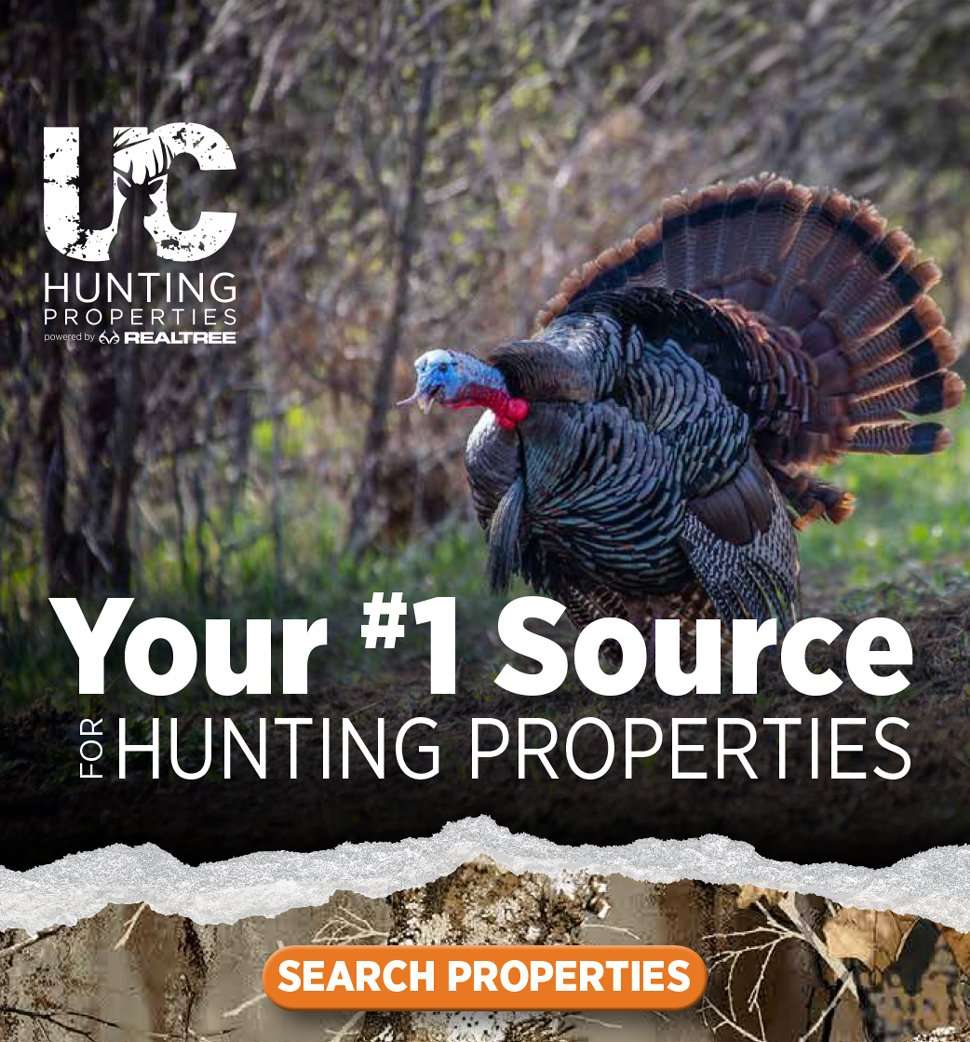705,000
Est. Whitetail Population
160,000
No. Licenses Sold Annually
$66 and Up
The hunting and fishing combo is $33. The big-game license is $33. Some residents choose the annual sportsman’s license for $165 instead of individual licenses.
Resident hunting license and deer permit
$305
The annual all-game license is $305. Some public lands require additional licensing.
Non-resident hunting license and deer permit
186 1/8"
Taken by W.A. Foster in Roane County in 1959.
Record B&C Typical Stat
53
Total B&C Typical Entries
315 1/8"
Taken by Stephen L. Tucker in Sumner County in 2016. It ranks 5th of all time.
Record B&C Non-Typical Stat
33
Record B&C Non-Typical Entries

Check out the latest info for Tennessee. Image by Bruce MacQueen
Season Dates (2024):
Tennessee has a special 3-day archery season for bucks only in late August, 23-25 this year. Following that, exact dates and bag limits vary a bit by unit but in general archery season runs Sept. 28-Nov. 8, muzzleloader season Nov. 9-22, and modern firearms season Nov. 23-Jan. 5. There are also two youth seasons, Oct. 26-27 and Jan. 11-12. Check the TENNESSEE WILDLIFE RESOURCES AGENCY (TWRA) WEBSITE to confirm season dates.
The Grade: B
The Volunteer State has high deer densities, and although it’s not traditionally been known as a big-buck state, it has been on an upward trend in recent years. Stephen Tucker’s giant non-typical, formerly the largest ever hunter-harvested buck, was taken here in 2016. Bag limit and regulation changes have been frequent over the past decade. Hunters have a two-buck annual limit in most of the state. Starting in 2024, Unit CWD has been removed, and there are now six numbered units in place across the state. Some hunting restrictions remain in place due to CWD surveillance measures in several western counties. Overall, Tennessee doesn’t have as many record book entries as some of its neighbors, but the hunting here is good, public land is fairly abundant, and there’s an opportunity to hunt bucks in velvet. It earns a solid B.
Antler Nation Knowledge:
The best age structures seem to be along the Mississippi River in the western part of the state. The Cumberland Plateau and eastern Tennessee aren’t as advanced in trophy production, but good opportunities still abound. For those who like a challenge, eastern Tennessee is very rugged, but those terrain and accessibility problems also allow bucks to reach older age classes.
When observing the Pope and Young and Boone and Crockett record books, a few counties stand out. Some include Davidson, Dyer, Haywood, Lake, Lauderdale, Montgomery, Robertson, Shelby, Stewart, Tipton, Williamson, and other southwestern border counties.
There are more than 1.5 million acres of PUBLIC LAND STATEWIDE, and many of these areas produce mature deer. Most are located in the eastern counties, but some OPPORTUNITIES EXIST in the western region. Don’t forget about specialty hunts, such as those conducted on FORT CAMPBELL, HOLSTON ARMY AMMUNITION PLANT, MILAN ARMY AMMUNITION PLANT, and more. In Unit CWD, consider the August velvet hunt. Just remember to check regulations, as several areas have unique guidelines.
For those who plan to hunt public land, check the regs before doing so. Many properties have unique regulations. Others are open to statewide seasons and rules.










